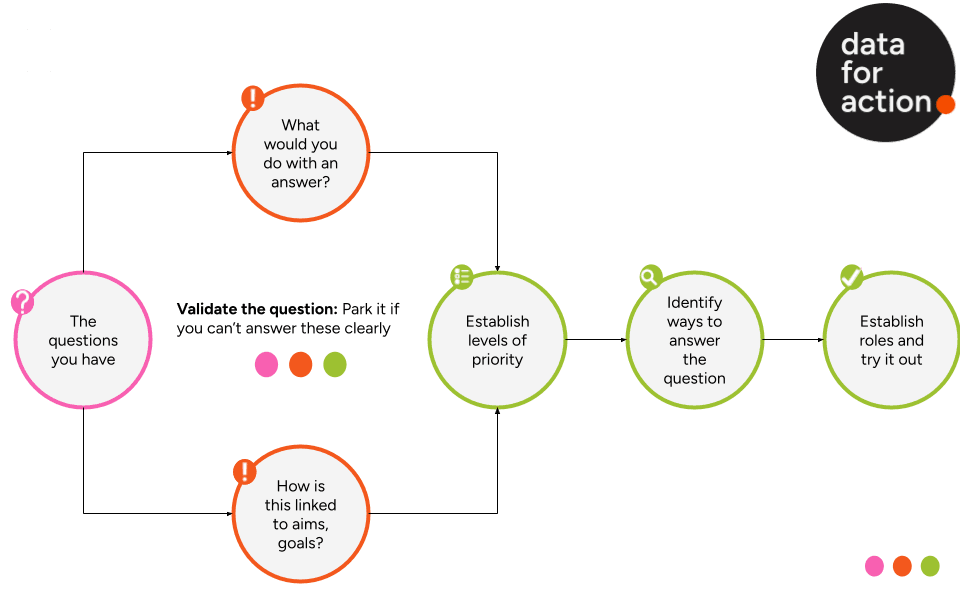A Question-Centered Approach to Data
Imagine if the secret to mastering data lies in our capacity to ask the right questions?


We believe starting with questions is the best way to approach data. It leans into our natural inquisitiveness, transforming raw numbers into meaningful insights and guiding the actions we take. This tool is designed to facilitate that process.
Lean into Inquisitiveness
We are all naturally curious. A question-based approach channels this innate drive to understand the world, helping to uncover deeper insights.
Democratise Data
Everyone can ask questions, regardless of their data expertise. This approach brings the whole team into the conversation. We are stronger together.
Focus on Action
The process is geared towards prioritising questions that lead to clear actions, ensuring your data work has a tangible impact.
Our Process in the Tool
1. Capture & Clarify
Input as many questions as you have, either individually or as a team. The first step is simply getting them all out in a shared space.
2. Assess & Align
For each question, assess two key things: How clear are you on the actions you could take if you had an answer? And how well does the question align with your organisation's goals?
3. Prioritise & Plan
Compare questions against each other to determine their relative priority. This helps you build a ranked list of your most important questions, creating a clear starting point for action.
Important: No Sign-In Required
This tool is designed for quick, easy access without the need for an account. We don't store your data on our servers. This means your session is ephemeral.
Please be sure to download your results at the end of your session. If you close your browser tab, your data will be gone.
Our Principles


Open by Default
We advocate for making resources, information, tools and data openly available by default, rather than keeping it hidden or restricted. We need to have a good reason NOT to make it open.
We believe in contributing to the commons, because we think transparency helps better decision making and improves what we (all) do. This tool is an example of that principle in action.